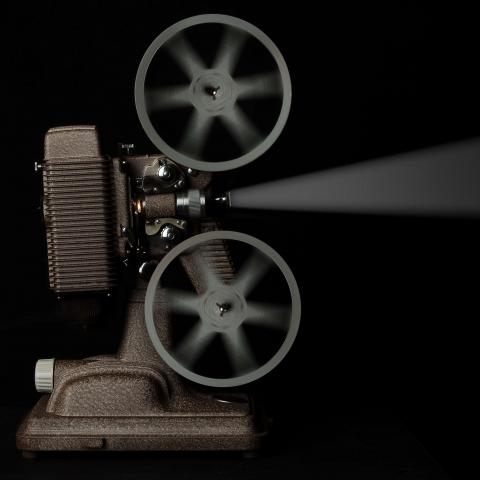
Unlike Hollywood, Israel’s film industry has traditionally been much smaller-scale. Still, it has been growing steadily in recent years, particularly since many breakthroughs have made their way onto Netflix or were even redone as American remakes. Hebrew movies and cinema are characterized not only by a typically more intimate, less bombastic approach to treating human stories (with some notable exceptions), but also by mixing comedy and melodrama quite naturally—something surely representative of the Israeli experience. While one could argue that more and more movies coming out of Israel today are modeled after the Tinseltown blockbuster, there have traditionally been—and still are—many unique, independent gems that could only have been made in Israel, with its singular (and often quite insane) reality.

In addition to giving you a great glimpse inside Israeli culture, watching Israeli films can without a doubt go a long way toward helping you as a Hebrew language learner. This is true both in terms of the exposure to natural Hebrew as spoken by actors with varying backgrounds (including non-natives), as well as the chance to pick up on themes and cultural cues unique to Israeli society. Indeed, many Israeli films deal, unsurprisingly, with themes that are particularly relevant to the reality of life in Israel: immigrant stories, intercultural clashes, the military experience, religion and secularity, etc. By watching these films, you can not only enjoy some entertainment but also deepen your language abilities while enriching your cultural appreciation for the crazy hodgepodge that is Israeli culture.

While there are dozens, if not hundreds, of excellent Israeli films that have come out over the years—including a number of international prize winners—we’ve put together our list of the top ten Israeli movies specifically for Hebrew learners. We’ve made our choices with an aim to represent the diversity of Israeli society while offering you a mix of comedy, drama, and other genres. We’re confident that these Hebrew-language movies will be both enjoyable and educational. Just don’t forget to jot down a few new words and phrases from each one so you don’t forget them later! A choice quote from a classic Israeli film dropped at the right moment is just the thing to add that extra touch of authenticity to your Hebrew. For more tips on using movies for learning Hebrew, check out this article.
 Table of Contents
Table of Contents
- גבעת חלפון אינה עונה
- חתונה מאוחרת
- מבצע סבתא
- סוף העולם שמאלה
- קדוש
- האושפיזין
- אדמה משוגעת
- לבנון
- פעם הייתי
- אלכס חולה אהבה
- HebrewPod101 is Your Go-To for Everything Hebrew
גבעת חלפון אינה עונה .1
Our first film, גבעת חלפון אינה עונה (Giv’at Khalfon Eynah ‘Onah), ineloquently translated as “Halfon Hill Doesn’t Answer,” is a true Israeli cult classic, indeed one of the very first to come out of Israeli cinema. First released in 1976, the movie is a satire of military life in the Israel Defense Forces (IDF), specifically the experience of lackadaisical reservists stationed in the Sinai Desert. (This was before Israel ceded the territory to Egypt for peace.)
The film features the comedy troupe הגשש החיוור (Ha-Gashash ha-Khiver), meaning “The Blind Tracker.” This trio is hands-down Israel’s most iconic comedy group, and have had a particular influence on modern Hebrew with their many word plays—much in the same way that William Shakespeare influenced English through his humorous wordsmithing. This movie is no exception, and there are quite a few phrases that have made their way into Hebrew’s lexicon via גבעת חלפון אינה עונה.
Here are some of the choicest morsels, along with an explanation of each one and how it might be used in day-to-day speech.
- לסרג’יו פנית, לא טעית.
Le-Serjio panita, lo ta’ita.
“You weren’t wrong to come to Sergio.” (lit.: “You’ve come to Sergio; you weren’t wrong.”)
This one, memorable for its end rhyme, is used to say something like, “You’ve got that right,” or, “You ain’t just whistlin’ Dixie.”
- מניאקים. כל היחידה הזאת, מניאקים.
Maniyakim. Kol ha-yekhidah ha-zot maniyakim.
“Nut jobs. This whole unit is a bunch of nut jobs.”
This one, as you may have guessed, is used to say that everyone around you is crazy.
- מצפון הים המכונה תיכון, ממזרח ישראל המכונה מדינה.
Mi-tzafon ha-yam ha-mekhuneh Tikhon, mi-mizrakh Yisra’el ha-mekhunah medinah.
“To the north, the sea known as the Mediterranean, to the east, Israel, known as a country.”
This famous quote perfectly encapsulates the self-effacing humor so typical of this comedy group, essentially questioning whether Israel can even be taken seriously enough to be considered a country.
2. חתונה מאוחרת
Shifting from the comedic realm to the melodramatic (although this film is not without comedy), Khatunah Me’ukheret, or “Late Marriage,” is a classic film starring Lior Ashkenazi in his breakthrough role as Zaza, a 30-something bachelor reluctant to marry despite pressure from his traditional Georgian family. As they attempt to arrange a suitable marriage for him, he secretly dates a somewhat older divorcée, Yehudit (played by Ronit Elkabetz), who also happens to be of Moroccan stock—a clash with Zaza’s Georgian roots, at least as far as his parents are concerned.
In this bittersweet tale, Zaza must ultimately choose between his love and his family. It’s a wonderful exploration of various issues facing Israel’s immigrant communities, such as opening up to Israel’s multicultural panorama as well as transitioning to a more modern, less old-fashioned lifestyle. The film is also interesting for its mix of Hebrew with Georgian, spoken by Zaza’s family.
- כאן יש להם משהו אחר. הם קוראים לזה אהבה.
Kan yesh lahem mashehu akher. Hem korim le-zeh ahavah.
“Here they have something else. They call it love.”
This quote, said by Zaza’s father when trying to arrange a marriage for his son with another Georgian family, exemplifies the generational disconnect: the younger generation seeking a marriage based on love and the older generation, looking back to life in Georgia, a marriage based on practical considerations.

3. מבצע סבתא
Shifting back to the realm of comedy, this film is an absolute cult classic in Israel, and one which (similar to גבעת חלפון אינה עונה) has left a deep impression on modern Hebrew as a highly quoted movie. This Hebrew comedy movie centers around three brothers originally from a kibbutz. Two of them have moved off the kibbutz, while one remains behind. When the brothers’ grandmother (their only surviving family member, their parents having died years before) passes away, and the kibbutz refuses to pay for the funeral over a technicality, they must hatch an elaborate scheme to pull off her funeral themselves while also juggling other personal obligations in their lives. The film is a hilarious romp that also affords a glimpse into the sometimes truly bizarre world of the Israeli kibbutz, as well as how it contrasts with city life.
- סבתא חיה מתה.
Savta Khayah metah.
“Grandma Chaya is dead.”
The joke here is that the name חיה (Khayah) also means “lives” or “is alive.” This is one of the phrases that can be used just to get a quick laugh, but it’s often applied to paradoxical situations.
- יש לכם 20 שניות, שזה 5 שניות יותר מדי, להשלים. זוז!
Yeish lakhem ‘esrim sh’niyot, she-zeh khamesh shniyot yoter miday, lehashlim. Zuz!
“You have 20 seconds, which is five seconds too many, to make up. Move!”
This line is spoken by Crembo, one of the three brothers, who is an officer in the military, to his two brothers who are fighting. It’s a good example of military speech.
- רק שלא תגמור לנו כמו מוטי בננה בציריך, הא?
Rak she-lo tigmor lanu kemo Moti Bananah be-Tzirikh, ha?
“Just don’t end up like Moti Banana in Zurich, huh?”
This line is a bit nebulous, but it’s clearly a reference to some cautionary tale about someone from the kibbutz who met a sad fate in Zurich. It can be used when mentioning a fate to be avoided.
4. סוף העולם שמאלה
Classic scene from the film
Yet another film about immigrants, Sof ha-’Olam Smolah or “Turn Left at the End of the World” in English, is particularly poignant. It examines the lives of עולים (‘olim, literally “ascenders”), or immigrants who arrive in the 1960s to a town developed for immigrant absorption in the middle of Israel’s Negev Desert. The immigrant community comprises mainly Indians and Moroccans, two obviously very distant cultures. Told through the lens of two young women, one from each culture, it examines the bonds of friendship, the challenges of maturity, and all the obstacles to integration faced by some of the poorer immigrant communities in the country. It’s worth noting that in Hebrew, סוף העולם שמאלה (sof ha-’olam smolah) is an expression roughly equivalent to “the middle of nowhere.”
- השנה 1968. האדם עומד לנחות על הירח וסטודנטים מפגינים ברחובות פריז, אך נדמה כי דבר ממאורעות אלה אינו משפיע על החיים בעיירה קטנה ומבודדת במדבר הישראלי.
Ha-shanah elef tsha’-me’ot shishim u-shmoneh. Ha-adam ‘omed linkhot ‘al ha-yare’akh ve-studentim mafginim bi-r’khovot Pariz, akh nidmeh ki davar mi-me’ora’ot eleh einoh mashpi’a ‘al ha-khayim be-ayarah ktanah u-mevudedet ba-midbar ha-Yisra’eli.
“The year is 1968. Man is about to land on the moon, students are out protesting in the streets of Paris, but it would seem that none of these events have any effect on life in a small and isolated town in the Israeli desert.”
This is the opening narration to the film, and sets the stage for the events to follow.

5. קדוש
Kadosh, or “Sacred” in English, is a painful but keen examination of life in Mea Shearim, one of the most famous ultra-Orthodox communities in Jerusalem. The story follows one couple unable to have children, a situation unacceptable enough in a world so centered on procreation (the first mitzvah or “commandment” in the Bible) that it is sufficient cause for annulling the matrimony, and another couple in a passionless marriage.
The film examines the ultra-Orthodox world from the perspective of two sisters, the wives in the aforementioned couples, and the ways in which their freedom is inhibited by the highly controlling community. In particular, it challenges the ultra-Orthodox view that a woman’s sole function is to bear children. As the Haredi (ultra-Orthodox) population of Israel hovers near two million, it is well worth familiarizing yourself with it to some extent if you plan to spend time in Israel, especially in Jerusalem.
- אתה סובל בגלל שאין לנו ילדים. אתה סובל בגלל שאתה חושב שאנחנו חיים בחטא.
Atah sovel biglal she-ein lanu yeladim. Atah sovel biglal she-atah khoshev she-anakhnu khayim be-kheit.
“You’re suffering because we don’t have any children. You’re suffering because you think we live in sin.”
These lines are spoken by one of the main characters, Rachel, to her husband. They encapsulate the couple’s emotional and spiritual struggle, which is at the core of the film.
6. האושפיזין
Ha-Ushpizin, which refers to the traditional guests to the סוכה (sukkah) during the festival of סוכות (Sukkot), is another film that sheds light onto the insulated world of the ultra-Orthodox. This film, however, is of a much more lighthearted nature; it’s also far less condemning and much more conciliatory. This may have a lot to do with the film’s star, Shuli Rand, who himself became ultra-Orthodox after being non-religious for many years. Such people are called חוזרים בתשובה (khozrim be-t’shuvah) or literally “those who return to the answer,” and this film is one of the few that successfully captures all of the beauty of religious values and the religious lifestyle, while not shying away from its problems either.
The plot follows a couple as they struggle to fulfill the mitzvah of hosting friends from the main character, Moshe’s, past life as a delinquent in their sukkah. It’s both humorous and profound, and a true work of art. It’s worth noting that Rand’s wife Michal, who plays Moshe’s wife, Mali, was not a professional actress but Rand insisted that he would only act opposite his wife due to religious restrictions on male-female intimacy outside matrimony.
- בסדר, אני יודע שאתה שונא עצבות אבל אני מה זה בעצבות. כולי עצבות. גוש של עצבות. חס ושלום אני לא חושב שמגיע לי משהו, ריבונו של עולם. לא מגיע לי כלום, אבל האמת אני לא מבין. אני אגיד לך את האמת: אני לא מבין. לפעמים אני לא יודע מה אתה רוצה ממני. לפעמים נראה לי אתה הולך איתי קצת קשה מדי.
Beseder, ani yode’a she-atah sone ‘atzvut aval ani mah zeh be-’atzvut. Kuli ‘atzvut. Gush shel ‘atzvut. Khas ve-shalom ani lo khosheiv she-magi’a li mashehu, Ribono shel ‘Olam. Lo magi’a li klum, aval ha-emet, ani lo mevin. Ani agid lekha et ha-emet: ani lo mevin. Lif’amim ani lo yode’a mah atah rotzeh mimeni. Lif’amim nir’eh li atah holekh iti ktzat kasheh miday.
“Okay, I know You hate sadness, but I’m really deep in sadness. My whole being is sadness. A lump of sadness. God forbid that I should think I deserve anything, Ruler of the Universe. I don’t deserve a thing, but the truth is I don’t understand. I’ll tell you the truth: I don’t understand. Sometimes I don’t know what You want from me. Sometimes I feel like you’re a little too tough on me.”
These lines come from a poignant scene where Moshe is praying to God for enough money to celebrate the Sukkot holiday. They illustrate the particularly Jewish notion of negotiating with God.

7. אדמה משוגעת
Adamah Meshuga’at (literally “Crazy Earth,” but rendered in English as “Sweet Mud”) is a painful look at the problems of kibbutz society. Told mainly from the perspective of a young boy, it illustrates how the kibbutz fails to address issues that tax its rigid ideals of a socialist society. The main character, Dvir, must care for his mentally unstable mother, a task clearly unsuitable for a young boy. The plot follows various complications that arise from this situation, and is an overall critique of kibbutz life and its disruption of family life, which is often whitewashed in Israeli popular culture as a marvelous social experiment. While lopsided in focusing only on the negative aspects of kibbutz life, the film is a good opportunity to get an intimate look at this strange world, as well as its lexis.
- תסתכלי פנימה ותשאלי את עצמך מה את יכולה לתת לקיבוץ.
Tistakli p’nimah ve-tish’ali et ‘atzmekh mah at yekholah latet la-kibbutz.
“Look inside yourself and ask what you can give the kibbutz.”
These lines are spoken to Dvir’s mentally ill mother, Miri, who obviously needs psychological help but is instead pushed to be a functional member of the kibbutz, come what may, ultimately leading her to break down.
8. לבנון
Levanon (“Lebanon”) is a chillingly intimate look at combat service in a tank during the very first days of the First Lebanon War. Following the model of Das Boot, the film is shot almost exclusively within the tank or through its own scopes, so that we really feel as though we are part of the crew. The unapologetically intense film portrays the tankists’ hopes and fears as well as the claustrophobia, noise, smells, etc. of the small space within the tank, while giving us a dirty but accurate picture of the horrors of war so many young Israelis must face during their service. Without making any political statements, it manages to humanize the stories of the individuals serving on the tank as well as their relationships as they depend on, and turn against, one another.
- יוני 1982. היום הראשון למלחמה. אני מוצא את עצמי בטנק עם שלושה אנשים שאני לא מכיר. אני מוצא את עצמי בעולם שאין לי מושג איך נכנסתי לתוכו.
Yuni elef tsha’-me’ot shmonim u-shtayim. Ha-yom ha-rishon la-milkhamah. Ani motzeh et ‘atzmi be-tank ‘im shloshah anashim she-ani lo makir. Ani motze et ‘atzmi be-’olam she-ein li musag eikh nikhnasti le-tokho.
“June 1982. The first day of the war. I find myself in a tank with three people I don’t know. I find myself in a world that I’m unsure how I entered into.”
These lines, spoken by one of the crew members, perfectly captures the bizarre and frightening atmosphere of being sent to a foreign country in a tank with an ad hoc crew, and the uncertainty and surrealism of a young soldier suddenly finding himself at war.

9. פעם הייתי
Pa’am Hayiti (literally “Once I Was,” rendered in English as “The Matchmaker”) is a touching nostalgic film about Arik, an adolescent boy who finds himself spending the summer working as an assistant to a rather unusual matchmaker, Yankele, who specializes in finding partners for difficult “matches.” The film, which takes place in Haifa, 1968, is a wonderful examination of a country still figuring out its identity. It seems to tell this story through Haifa’s underbelly, focusing on outcasts and odd characters. It also examines the scars left by the Holocaust, as many of the immigrants are survivors. Additionally, it’s a good opportunity to hear the many accents of Hebrew as spoken by immigrants, or at least actors playing immigrants.
- שדכן אמור לתת לא מה את רוצה, אלא מה את צריכה.
Shadkhan amur latet lo mah at rotzah, ela mah at tz’rikhah.
“A matchmaker should give you not what you want, but what you need.”
- שדכן עם נשמה חושב קודם כול טוב על בנאדם. רואה צולע, אומר שידוך טוב – לא ירוץ אחרי בחורות. עיוור – מצוין, לא מסתכל ימינה שמאלה. אילמת – טוב מאוד, אין ויכוחים בבית.
Shadkhan ‘im neshamah khoshev kodem kol tov ‘al ben’adam. Ro’eh tzole’a, omer shidukh tov – lo yarutz akharei bakhurot. ‘Iver – metzuyan, lo mistakel yeminah smolah. ‘ilemet – tov me’od, ein vikukhim ba-bayit.
“A matchmaker with a soul first thinks well of a person. He sees a man with a limp, he says, a good match – he won’t go out chasing skirts. A blind man – excellent. He doesn’t look right and left. A mute woman – very good. No arguments at home.”
Both of these quotes capture the charming and heartwarming attitude of Yankele, who seems to truly wish to spread love—particularly to those others may deem unlovable—even as he himself clearly bears great suffering and loneliness.
10. אלכס חולה אהבה
Last but not least, Aleks Kholeh Ahavah (“Lovesick Alex”) is a comedy, for sure, but one that also carries the same whiff of nostalgia as The Matchmaker. This is unsurprising as Avi Nesher directed both films and is clearly communicating his own pining for times past, an Israel lost in its own race to catch up with modernity.
This film is really a gallimaufry of genres, as it mixes linguistic and slapstick humor, melodrama, coming of age, romance, and even a bit of tragedy. The movie focuses on its title character’s journey from boyhood to manhood, his many antics with friends, and his crush on an aunt who comes to visit from Europe in search of her betrothed, whom she lost touch with during the Holocaust. Simply one of the greatest Hebrew films, and one that could only come from Israel.
- בחורות ערומים זה חולירע!
Bakhurot ‘arumim zeh kholerah!
“Naked girls are cholera!”
This is one of the many great lines from Alex’s Russian immigrant teacher, whose Hebrew is truly awful despite the fact that he’s the one teaching the class. He makes Alex repeat this with the class after catching him with some playing cards showing topless women.
- תשתה מים קרים תקבל אנגינה.
Tishteh mayim karim tekabel anginah.
“Drink cold water, you’ll get angina.”
This line comes as one of the many warnings to Alex from his mother, a stereotypical Polish worrywart mother (in Hebrew, אמא פולניה [imma Poloniyah], or “Polish mother” is synonymous with this).
- ימח שמך טרוריסט שכמוך.
Yimakh shimkha terorist she-kamokha.
“May your name be blotted out, a terrorist such as you.”
This hilarious line comes from the rabbi teaching Alex to read his Torah portion for his bar mitzvah, after killing a fly with a swatter.

11. HebrewPod101 is Your Go-To for Everything Hebrew
We hope you found today’s lesson a fun change of pace. It’s always important to switch things up when learning a language, both to keep things interesting and also to avoid burnout. Making an effort to learn Hebrew through movies is a great option, as long as you make sure to actually find a way to pick up a few words or phrases. Remember that the more exposure you can get, the better.
We here at HebrewPod101 are constantly updating our expansive online archives to ensure that all our Hebrew language learners have access to a broad array of materials in print, audio, and video. We also publish many lessons referring our learners to other media, so make sure to browse around. Let us know how you liked the movies! And don’t forget the popkoren, as we Israelis would say. Until next time, shalom!










